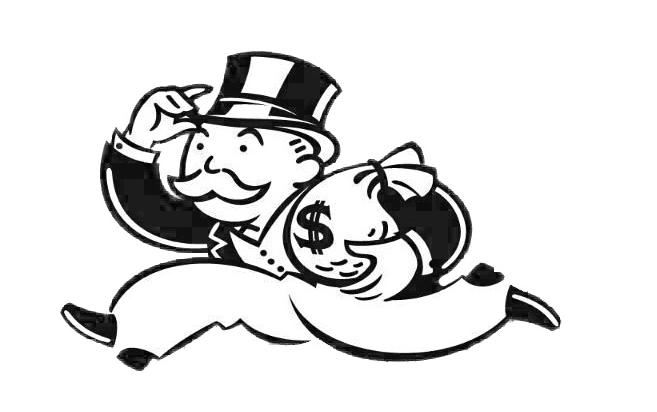So how can the urban/suburban householder monk or nun most mindfully (lovingly) relate to the myriad money matters that arise each day, each week, each month, each year? We can’t ignore money, obviously, no matter how much some of us might try. (When we ignore money, we most often end up very, very broke!)

As we detail here on this site (see The Basics) the most important thing we can do for ourselves and those around us, whether or not we’re monks or nuns or just plain ordinary people living our lives—the most important thing we can do is to enjoy our happiness, be at peace. We might argue this, when the time and place are appropriate, but for those of us practicing at HMM, this is pretty basic. Would you rather have a happy, peaceable friend, brother or sister, or one who was not happy, not peaceable?
Duh.
So when it comes to money, we want to be happy, peaceable. Money might be one of the hardest arenas for some people to practice their joy, their peace. But it’s the arena most easily “demonstrated.”
A number of years ago I had a very profound, but nevertheless simple, basic, insight:
The thoughts I enjoyed about money were prospering thoughts. The thoughts I did not enjoy about money were impoverishing thoughts.
Put another way, when I am at peace with my thoughts about money, I am prospering, I am prosperous. When I’m not at peace with my thoughts about money, I’m impoverishing myself, I’m impoverished.
Naturally, along with this insight came the very clear observation that (at that time) I did NOT enjoy 90% of the thoughts I was thinking about my money situation! I was not at peace with my “money thoughts.” Most of them were: Yikes, that’s too much (to pay.) Arrgh, I don’t have enough. They’re overcharging. I’m not going to pay that. These bills just keep mounting up. Etc. etc.
And we’ve all had the experience of getting a check—be it a paycheck or a check for services or refund check or gift check—where we were maybe expecting, hoping for much more. So when we get the check, we look at it and are disappointed. “Ah shucks.”
That’s a little bit like going over to a friend’s house, knocking on the door, and when he/she opens, she says, “Oh, it’s you,” obviously disappointed. Chances are, we’re not real anxious to return to that friend’s house anytime soon. Same thing with money.
So how do we make friends with money? Our own money and other people’s money?
For this post, let’s just stick with our own personal money. We can train ourselves, a penny, a nickel, a dime or a dollar at a time, to enjoy whatever money is coming in, and, just as important, if not more so, whatever money is going out. This is Spiritual Economics 101.
So when we get a refund check from the telephone company for $1.76, we grin, and are grateful. We enjoy the $1.76. And when the utility bill is $374.00, we write a check and, to whatever degree possible, enjoy the fact that we don’t have to go down to the river to haul our water, we don’t have to chop wood to heat our house. When the credit card bill arrives, or the rent is due, we send the money out, not begrudgingly, but thankfully. And if we can’t pay the whole $374.00 at this time, we can be grateful for the $174.00 check we are sending.
For most of us, it takes time to redo our basic money programming. As Americans, as westerners, and particularly as Christians or Jews, most of us were NOT taught to enjoy our thoughts about money. Au contraire. We were taught to generate a whole host of “worry, worry, worry” thoughts (thoughts we did not enjoy) about money.
But again, Spiritual Economics 101: The thoughts we enjoy about money, the thoughts about money with which we are at peace, are prospering thoughts. The thoughts we don’t enjoy about money, the thoughts about money with which we are not at peace, are impoverishing thoughts. It’s basic physics, and/or basic metaphysics.
Again, you can argue this if you want. As the Senior Librarian here at Heart Mountain Monastery, I’ve been practicing this very simple form of “basic spiritual economics” for over ten years. From my own direct experience, I am as confident about this basic economic principle as I am about gravity. I’ve dropped enough heavy things on my toe to know . . .
Lots of nuances and implications regarding this basic principle, of course. But it gives us a place to start. Do you enjoy that thought about money? Are you at peace with it? If so, great, you’re prospering. If not, you are not obliged to think it, no matter what the world might say.
Let me know your own experience. As you will discover, or already know, this is a very rich vein to mine.

Recent Comments